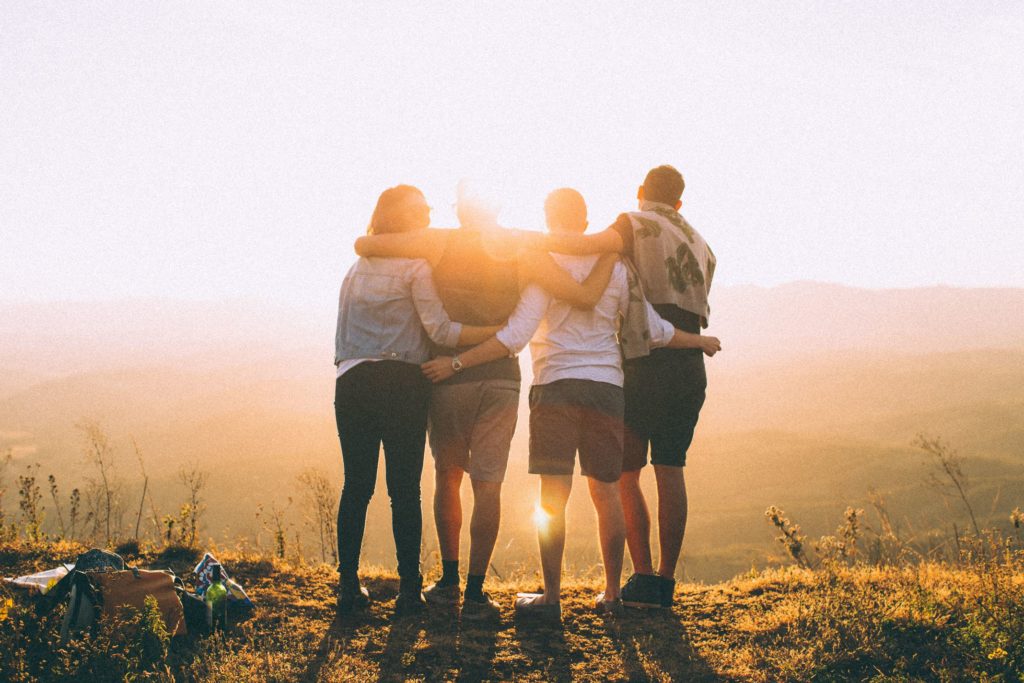In Addiction and Recovery, You Are Never Alone

The need to connect with others is hard-wired into all of us. People need relationships to feel complete and, when they feel deprived of them, they suffer dearly. Isolation and loneliness are leading causes of mental illnesses and substance use disorders.
Substances place a barrier between us and our loved ones. When people feel disconnected from others in their lives, they sometimes turn to substances for comfort. This cycle of isolation and substance use feeds itself until people with substance use disorder feel like they are completely alone.
Knowing that you have someone to turn to is essential when you are struggling with addiction or maintaining sobriety. Fortunately, no one is ever as alone as they think. Whether connecting with loved ones, addiction treatment professionals or others who have had similar experiences, people can find the help they need to move forward.
If you or someone you love is struggling, know that help is available. Here are just a few of the many available resources.
You Are Never Alone – Help is Always a Phone Call Away
For emergencies, always call 911. Whether you’re concerned about a medical emergency or a life-threatening situation, emergency responders are the only ones equipped to handle a true crisis.
Addiction treatment professionals are a vital lifeline for those struggling with drug and alcohol use. Addiction treatment centers are located throughout the country, so you can always find help by placing a phone call. Austin has several addiction treatment facilities. To find one, you can contact Sober Austin by calling 512-981-6572 or emailing soberaustin77@gmail.com. We provide local resources for people with a substance use disorder and their loved ones.
If you simply don’t know where to begin, call 2-1-1 Texas. 2-1-1 Texas is free and confidential. They have a large database of resources for people throughout the state. In addition to helping those seeking substance use treatment, 2-1-1 Texas also assists people who are looking for food, housing, childcare and crisis counseling.
Mental illness and substance use are closely linked. If you are concerned about your own mental health or the condition of a loved one, don’t wait to contact a professional. One of the best resources is the Substance Abuse and Mental Health Services Administration (SAMHSA), which is part of the U.S. Department of Health and Human Services.
SAMHSA’s national helpline is 1-800-662-HELP (4357). They offer free, confidential assistance 24/7. SAMHSA refers people to local treatment facilities, support groups and community-based organizations.
Talk to Others with Similar Experiences
If you aren’t ready to call a treatment facility or you aren’t comfortable speaking with loved ones, consider going to a 12-step meeting. We provide a list of 12-step meetings in Austin where you can see what these programs offer. Hearing the stories of people with similar struggles will help you realize that you are never alone in the challenges you face.
If you aren’t interested in 12-step programs, you’ll find many other alternatives in Austin. Everyone is on their own path, so look for a group that most resonates with you.
Loved Ones Might Not Realize What You’re Going Through
We often feel isolated even when we have many people in our lives that care about us. Depression and anxiety cloud our perspective and convince us that friends and family don’t care about what we’re going through. It’s important to realize that your loved ones might not fully understand your struggles because you’ve never talked about them.
Have you spoken to your closest loved ones about what is happening in your life? Is it possible that they assume you are unhappy with them because they are misinterpreting your behavior? In many cases, a lack of communication impairs relationships and isolates us from the people we need most. If you have a friend or family member you trust, know that they might be more responsive to your concerns than you realize.
If You Need Help, It Is Available
When you’re fighting addiction, you are never alone. Reaching out seems difficult. It makes us feel vulnerable, but most people in recovery felt the same way when they first decided to ask for help. Making a call is the first step, and it is the most crucial one. It’s only once we realize we need help that we are finally able to accept it.
Make it a priority to build your own sober support network. This network includes those you most rely on in recovery, including sponsors and others in your meetings or recovery community. It’s an extremely powerful tool for those times you need someone to speak to about your struggles.
Sober Austin’s mission is providing resources to people with addictions and the loved ones of those suffering from a substance use disorder. We know how important is for everyone to understand that they are not alone. We encourage you to browse the Sober Austin website to find contact information for 12-step programs, addiction treatment facilities and addiction therapists, among many other resources. Call us at 512-981-6572 or send us an email at soberaustin77@gmail.com so we can find you someone to talk to.

